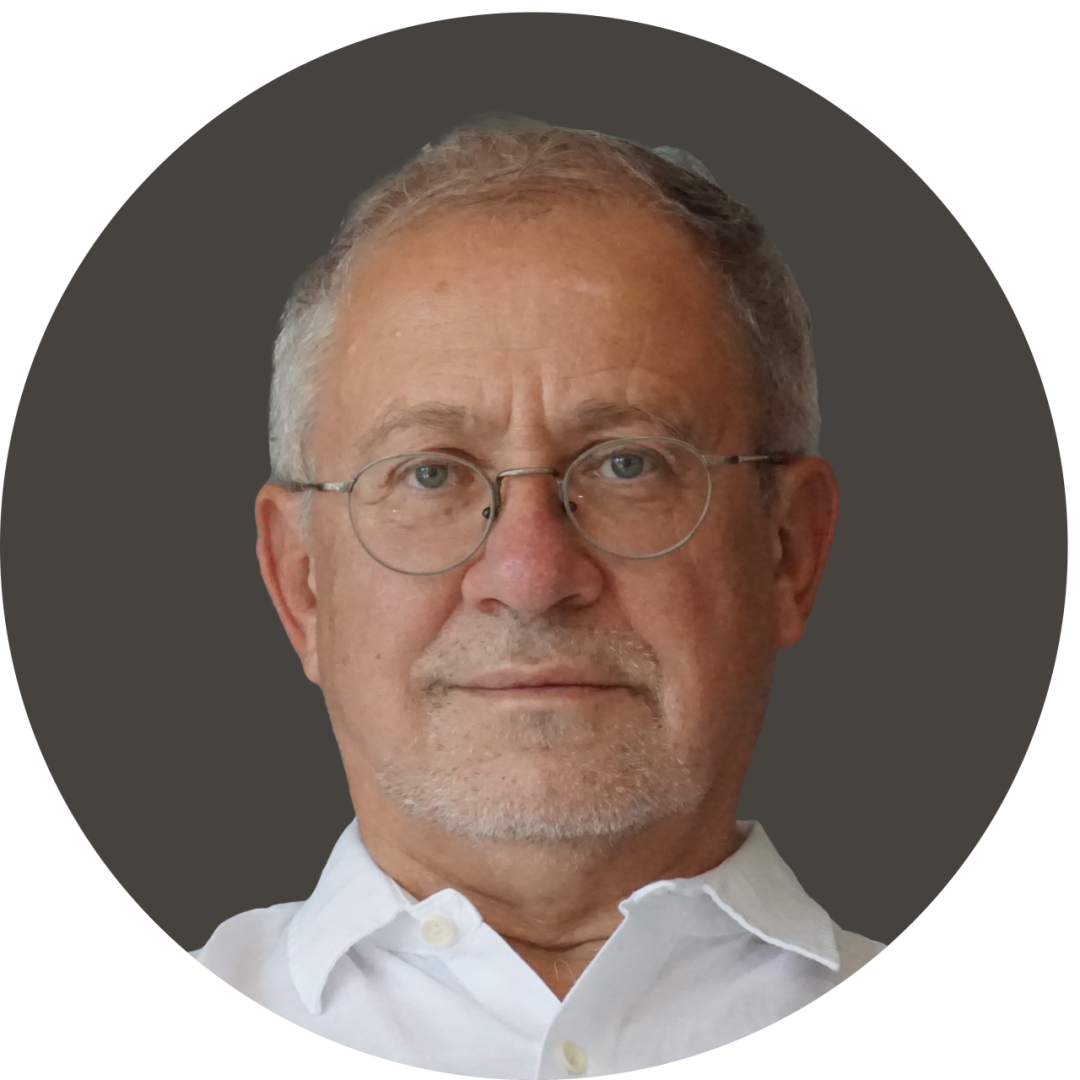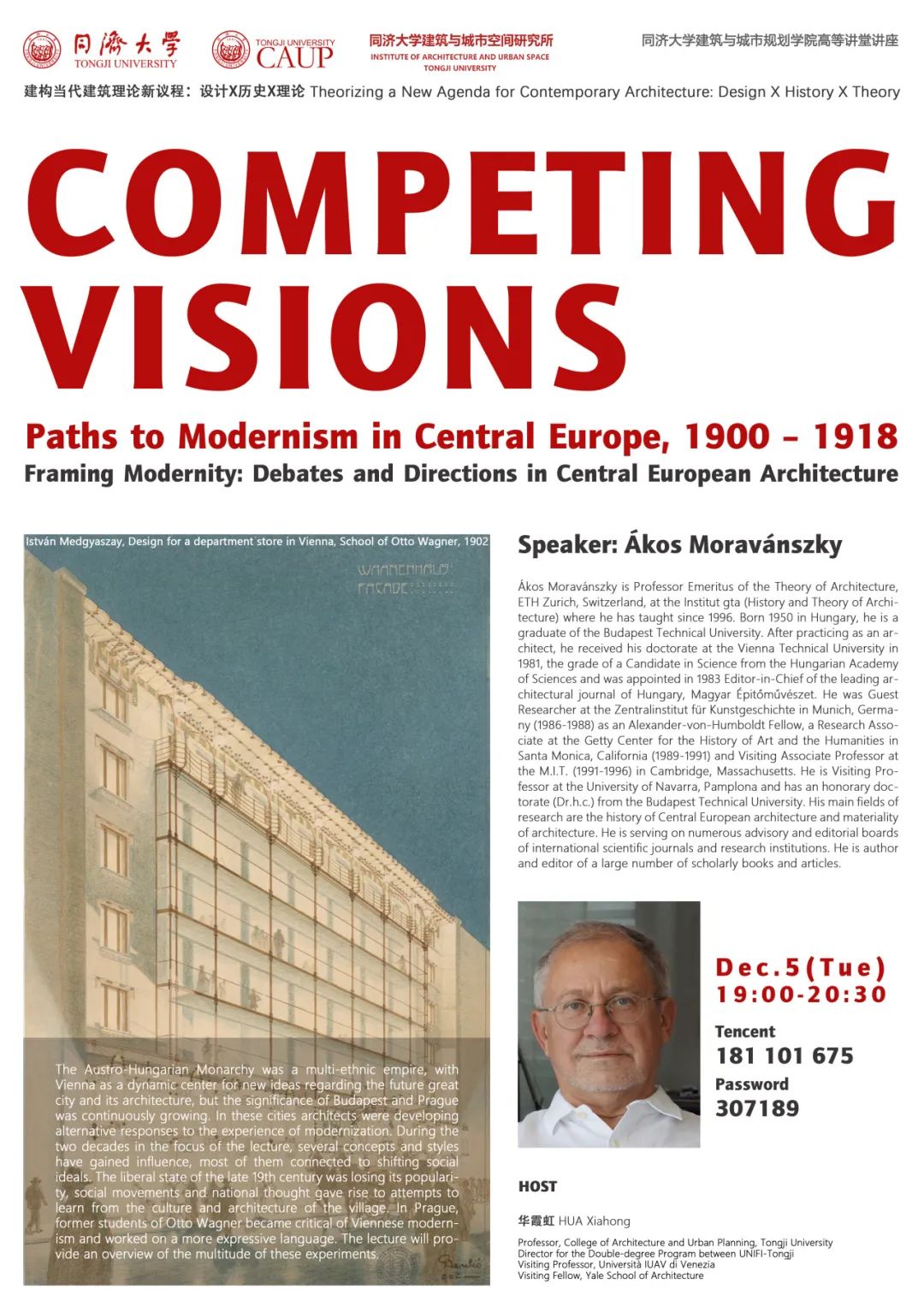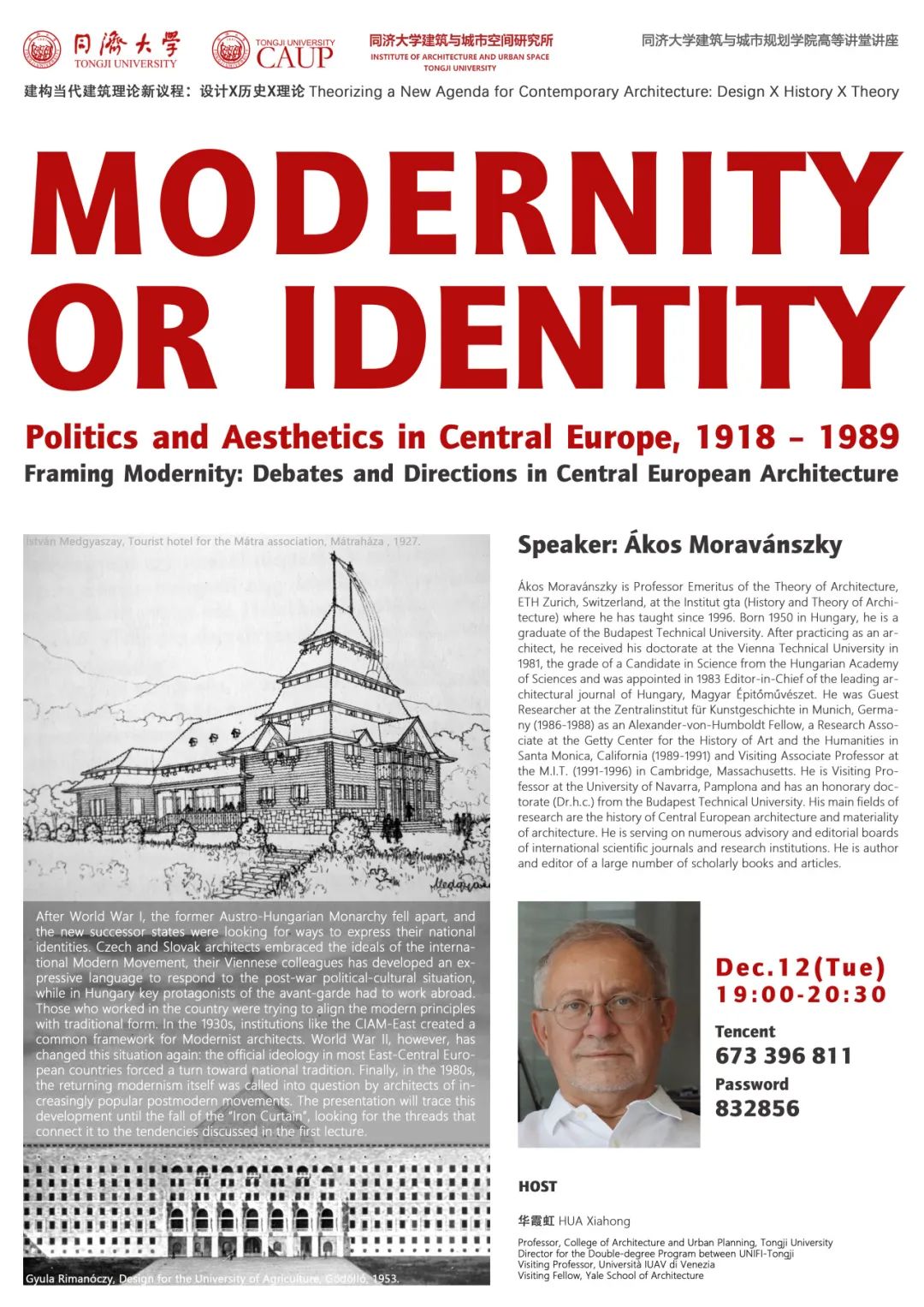
Framing Modernity:
Debates and Directions in Central European Architecture

Speaker
Ákos Moravánszky
Ákos Moravánszky is Professor Emeritus of the Theory of Architecture, ETH Zurich, Switzerland, at the Institut gta (History and Theory of Architecture) where he has taught since 1996. Born 1950 in Hungary, he is a graduate of the Budapest Technical University. After practicing as an architect, he received his doctorate at the Vienna Technical University in 1981, the grade of a Candidate in Science from the Hungarian Academy of Sciences and was appointed in 1983 Editor-in-Chief of the leading architectural journal of Hungary, Magyar Épitőművészet. He was Guest Researcher at the Zentralinstitut für Kunstgeschichte in Munich, Germany (1986-1988) as an Alexander-von-Humboldt Fellow, a Research Associate at the Getty Center for the History of Art and the Humanities in Santa Monica, California (1989-1991) and Visiting Associate Professor at the M.I.T. (1991-1996) in Cambridge, Massachusetts. He is Visiting Professor at the University of Navarra, Pamplona and has an honorary doctorate (Dr.h.c.) from the Budapest Technical University. His main fields of research are the history of Central European architecture and materiality of architecture. He is serving on numerous advisory and editorial boards of international scientific journals and research institutions. He is author and editor of a large number of scholarly books and articles.
Host & Discussant
HUA Xiahong
Professor, CAUP, Tongji University
Director for the Double-degree Program between UNIFI-Tongji
Visiting Professor, Università IUAV di Venezia
Visiting Fellow, Yale School of Architecture
Lecture I

Competing Visions.
Paths to Modernism in Central Europe,
1900 – 1918
Abstracts
The Austro-Hungarian Monarchy was a multi-ethnic empire, with Vienna as a dynamic center for new ideas regarding the future great city and its architecture, but the significance of Budapest and Prague was continuously growing. In these cities architects were developing alternative responses to the experience of modernization. During the two decades in the focus of the lecture, several concepts and styles have gained influence, most of them connected to shifting social ideals. The liberal state of the late 19th century was losing its popularity, social movements and national thought gave rise to attempts to learn from the culture and architecture of the village. In Prague, former students of Otto Wagner became critical of Viennese modernism and worked on a more expressive language. The lecture will provide an overview of the multitude of these experiments.
Time
December 5, 2023
19:00-20:30 (Beijing Time)
12:00-13:30 (Zurich Time)
Tencent
Meeting ID: 181 101 675
password: 307189
Lecture II

Modernity or Identity?
Politics and Aesthetics in Central Europe,
1918 – 1989
Abstracts
After World War I, the former Austro-Hungarian Monarchy fell apart, and the new successor states were looking for ways to express their national identities. Czech and Slovak architects embraced the ideals of the international Modern Movement, their Viennese colleagues has developed an expressive language to respond to the post-war political-cultural situation, while in Hungary key protagonists of the avant-garde had to work abroad. Those who worked in the country were trying to align the modern principles with traditional form. In the 1930s, institutions like the CIAM-East created a common framework for Modernist architects. World War II, however, has changed this situation again: the official ideology in most East-Central European countries forced a turn toward national tradition. Finally, in the 1980s, the returning modernism itself was called into question by architects of increasingly popular postmodern movements. The presentation will trace this development until the fall of the “Iron Curtain”, looking for the threads that connect it to the tendencies discussed in the first lecture.
Time
December 12, 2023,
19:00-20:30 (Beijing Time)
12:00-13:30 (Zurich Time)
Tencent
Meeting ID: 673 396 811
password: 832856
 ABOUT US
ABOUT US




